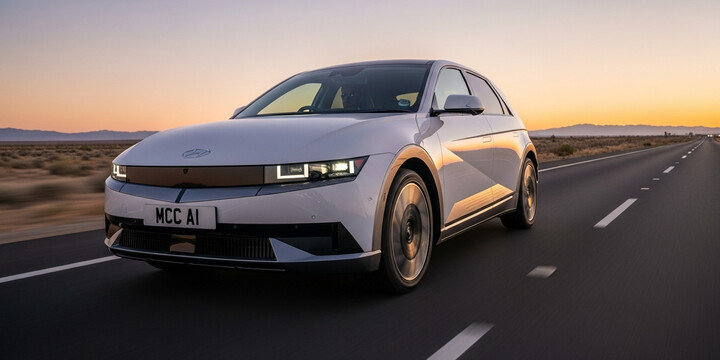HYUNDAI IONIQ 5 (2024-) 5DR HATCHBACK 0.0 ELECTRIC 63KWH 170 ADVANCE AUTO

Buyer's Guide & Data from our Checks
The HYUNDAI IONIQ 5 (2024-) 5DR HATCHBACK 0.0 ELECTRIC 63KWH 170 ADVANCE AUTO is an all-electric hatchback designed to stand out in the UK market. Its modern, sleek design and spacious interior make it a popular choice for families and urban drivers looking for an eco-friendly vehicle. This model is especially suited for daily commuting and city driving, offering smooth acceleration and zero tailpipe emissions.
Based on mycarcheck.com data, the vehicle has been checked a small number of times, with three different VINs recorded, indicating limited but recent interest. The average private sale value is around £27,400, reflecting its competitive pricing in the electric vehicle market. Its standout features include a generous 63kWh battery, providing a good driving range, and a reputation for reliability and innovation.
Compared to rivals, the Hyundai Ioniq 5 is known for its distinctive design, advanced tech features, and versatility. It’s often praised for offering a comfortable, quiet driving experience and a level of practicality that appeals to a wide range of drivers. Overall, it’s a well-regarded electric option in its class for those seeking a stylish and dependable vehicle.
Key Findings
The following statistics are drawn from our checks of 3 different vehicles, run between September 17th 2025 and December 31st 2025. These real-world insights provide context for this vehicle's place in the market, as well as its typical usage.
4
Lookups
Lookups
0
Hidden Histories
Hidden Histories
0k
Average Mileage
Average Mileage
£27,400
Average Valuation
Average Valuation












